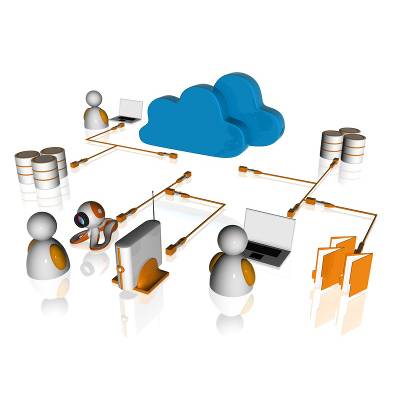 Take a moment to consider your answer to this question, "What would you do if all of your business's data was somehow lost overnight?" How would you react, and what would you do about it? Your data is valuable, so much in fact that your business would be lost without it, and likely wouldn't be able to run properly.
Take a moment to consider your answer to this question, "What would you do if all of your business's data was somehow lost overnight?" How would you react, and what would you do about it? Your data is valuable, so much in fact that your business would be lost without it, and likely wouldn't be able to run properly.
Macro Systems Blog
 The office might be moving toward digital filing more and more every day, but that doesn't change the fact that you sometimes need to print something out for your own needs. Some offices need a printer for hard copies of documents in the event that their system can't be accessed. Overall, having a printer around can be very beneficial to your company, but do you know how to choose between the many different types of printers?
The office might be moving toward digital filing more and more every day, but that doesn't change the fact that you sometimes need to print something out for your own needs. Some offices need a printer for hard copies of documents in the event that their system can't be accessed. Overall, having a printer around can be very beneficial to your company, but do you know how to choose between the many different types of printers?
 For years, IT departments have been stereotyped as an antisocial bunch hiding in the shadows of server rooms, only coming out when a fellow employee experiences a problem with their workstation or a new gadget is released. Today, thanks to the prevalence of technology in every aspect of business, technicians are on the forefront of major business decisions and this stereotype is no more!
For years, IT departments have been stereotyped as an antisocial bunch hiding in the shadows of server rooms, only coming out when a fellow employee experiences a problem with their workstation or a new gadget is released. Today, thanks to the prevalence of technology in every aspect of business, technicians are on the forefront of major business decisions and this stereotype is no more!
 When it comes to owning anything expensive, it's important to practice proper maintenance. One of the most basic things you can do to take better care of your computer is to periodically examine the software on your computer. Although software maintenance can be challenging at times, it can be incredibly rewarding.
When it comes to owning anything expensive, it's important to practice proper maintenance. One of the most basic things you can do to take better care of your computer is to periodically examine the software on your computer. Although software maintenance can be challenging at times, it can be incredibly rewarding.
 On May 7, 2014, the U.S. Securities and Exchange Commission (SEC) released a news alert declaring Bitcoin, and all other virtual currencies insecure and unsafe. Due to a rise in Bitcoin popularity, many investors and business owners like to use it for worldwide transactions. But, how safe is it, and how likely are you to run into a Bitcoin fraud scheme?
On May 7, 2014, the U.S. Securities and Exchange Commission (SEC) released a news alert declaring Bitcoin, and all other virtual currencies insecure and unsafe. Due to a rise in Bitcoin popularity, many investors and business owners like to use it for worldwide transactions. But, how safe is it, and how likely are you to run into a Bitcoin fraud scheme?
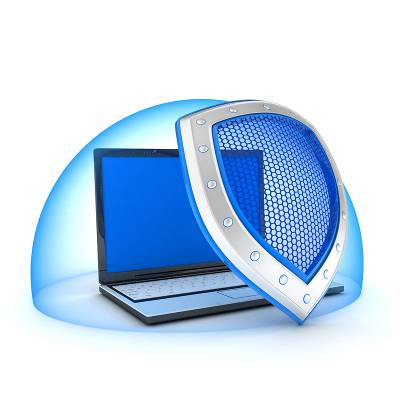 In December 2013, retail superpower Target was the target (hehe) of a massive data breach that could have affected as many as 110 million customers. On Monday, May 5, 2014, the CEO of Target, Gregg Steinhafel, announced that he would be stepping down, no doubt a result of the chaos that engulfed his company in the aftermath of this data breach. Target's CFO, John Mulligan, has stepped in as interim CEO until the position is filled once again.
In December 2013, retail superpower Target was the target (hehe) of a massive data breach that could have affected as many as 110 million customers. On Monday, May 5, 2014, the CEO of Target, Gregg Steinhafel, announced that he would be stepping down, no doubt a result of the chaos that engulfed his company in the aftermath of this data breach. Target's CFO, John Mulligan, has stepped in as interim CEO until the position is filled once again.
 GameOver Zeus, a member of the Zeus family of malware, has been discovered and disrupted by the Department of Homeland Security, Federal Bureau of Investigation, and Department of Justice. But, this is only a temporary respite from the danger the malware poses - in two weeks, the threat will be back, and very much alive.
GameOver Zeus, a member of the Zeus family of malware, has been discovered and disrupted by the Department of Homeland Security, Federal Bureau of Investigation, and Department of Justice. But, this is only a temporary respite from the danger the malware poses - in two weeks, the threat will be back, and very much alive.
 Mobile devices are designed for different purposes than the big, bulky desktops are. The Chrome operating system of the Google Chromebook is a perfect example of this - it looks like nothing but a browser with a keyboard. Sure, it can't do everything a real computer can do, but it sure can do a lot more than some people give it credit for.
Mobile devices are designed for different purposes than the big, bulky desktops are. The Chrome operating system of the Google Chromebook is a perfect example of this - it looks like nothing but a browser with a keyboard. Sure, it can't do everything a real computer can do, but it sure can do a lot more than some people give it credit for.
 Firewalls are the first thing companies think of when it comes to data security. What is the last security risk on an organization's mind? Your most tech-savvy employee. If someone were to "get to" the employee overseeing your network, they would be able to do some serious damage. What are you doing to protect your data from the employees you trust the most?
Firewalls are the first thing companies think of when it comes to data security. What is the last security risk on an organization's mind? Your most tech-savvy employee. If someone were to "get to" the employee overseeing your network, they would be able to do some serious damage. What are you doing to protect your data from the employees you trust the most?
 Many websites around the world are still suffering from the nasty little bug called Heartbleed that we covered last month. This prompted over 30,000 TLS/SSL certificates to be revoked and reissued, but many of them were reissued with the same keys. If this was going to happen, why revoke and reissue them in the first place? They're still just as vulnerable as before, since Heartbleed could have leaked those same keys weeks ago.
Many websites around the world are still suffering from the nasty little bug called Heartbleed that we covered last month. This prompted over 30,000 TLS/SSL certificates to be revoked and reissued, but many of them were reissued with the same keys. If this was going to happen, why revoke and reissue them in the first place? They're still just as vulnerable as before, since Heartbleed could have leaked those same keys weeks ago.
 eBay issued an official declaration on Wednesday, May 21, 2014 that one of its databases had been hacked. The worst part? This database, which housed users' passwords, was compromised. But, there is a silver lining to all of this - no information has been stolen.
eBay issued an official declaration on Wednesday, May 21, 2014 that one of its databases had been hacked. The worst part? This database, which housed users' passwords, was compromised. But, there is a silver lining to all of this - no information has been stolen.
None that they know of, anyway. The auctioning website is still cautioning users to change their passwords in light of the attack.
 How much paper and ink does your company use every week? Every month? Every year? More importantly, how much does this wind up costing your company in the long run? According to a study by 14 year-old science fair wiz Suvir Mirchandani, it was discovered that his Pittsburgh-area school district could reduce ink consumption by 24 percent and save an average of $21,000 a year by simply switching fonts. That's half of what the average American's annual salary is!
How much paper and ink does your company use every week? Every month? Every year? More importantly, how much does this wind up costing your company in the long run? According to a study by 14 year-old science fair wiz Suvir Mirchandani, it was discovered that his Pittsburgh-area school district could reduce ink consumption by 24 percent and save an average of $21,000 a year by simply switching fonts. That's half of what the average American's annual salary is!
 If your workplace is filled with computers, you likely experience a number of eye-straining problems related to your technology. According to All About Vision, symptoms of computer eye strain impair 50-to-90 percent of all computer workers. That's a pretty good-sized chunk of your employees, and they probably don't enjoy any of these symptoms, including physical fatigue, decreased productivity, and even increased error rate.
If your workplace is filled with computers, you likely experience a number of eye-straining problems related to your technology. According to All About Vision, symptoms of computer eye strain impair 50-to-90 percent of all computer workers. That's a pretty good-sized chunk of your employees, and they probably don't enjoy any of these symptoms, including physical fatigue, decreased productivity, and even increased error rate.
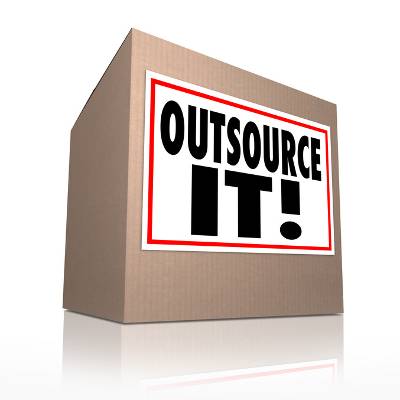 Who's in charge of making the decisions in your business concerning technology? Ideally, you want an internal IT manager or a CIO with IT experience calling the tech shots. However, many businesses don't have this luxury. According to a CompTIA survey from last November, 48 percent of businesses have managers making decisions about technology implementation that don't have IT experience.
Who's in charge of making the decisions in your business concerning technology? Ideally, you want an internal IT manager or a CIO with IT experience calling the tech shots. However, many businesses don't have this luxury. According to a CompTIA survey from last November, 48 percent of businesses have managers making decisions about technology implementation that don't have IT experience.
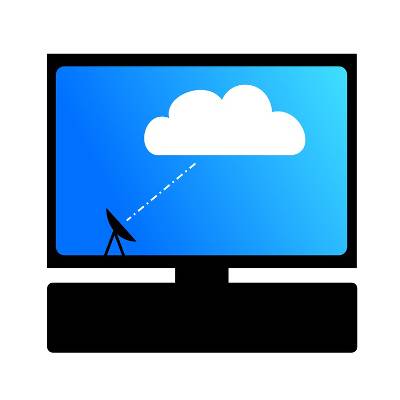 The world is slowly being overrun by machinery, and we are finding new uses for it every day. While not an entirely new subject, desktop virtualization is something that has become increasingly popular over the past few years, and it's easy to see why. Instead of keeping your desktop in a physical form, it's becoming more reliable to keep it digitally tucked away, safe and sound. This frees it from the potential physical problems associated with computers, such as a sudden crash or just dying out with age.
The world is slowly being overrun by machinery, and we are finding new uses for it every day. While not an entirely new subject, desktop virtualization is something that has become increasingly popular over the past few years, and it's easy to see why. Instead of keeping your desktop in a physical form, it's becoming more reliable to keep it digitally tucked away, safe and sound. This frees it from the potential physical problems associated with computers, such as a sudden crash or just dying out with age.
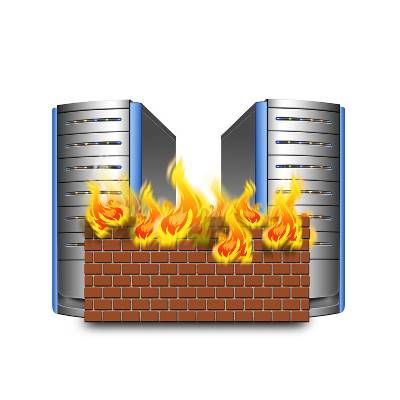 It's no secret that the Internet is full of dangerous activity. Too many people think their networks are safe without any kind of protection. We don't mean to say that the Internet isn't safe, but that it's only as safe as you make it for yourself. In order to keep your small business safe, you should implement protective software, like a firewall. A firewall can help keep your company safe from online threats, and believe us when we say that a little bit of protection goes a long way.
It's no secret that the Internet is full of dangerous activity. Too many people think their networks are safe without any kind of protection. We don't mean to say that the Internet isn't safe, but that it's only as safe as you make it for yourself. In order to keep your small business safe, you should implement protective software, like a firewall. A firewall can help keep your company safe from online threats, and believe us when we say that a little bit of protection goes a long way.
 Hosting the party isn't for everyone; it's a matter of space, cost, and responsibility. You could be the life of the party, but nobody would know because you're so busy making sure that everything is set and ready to rumble. Wouldn't it be easier if you could just hire someone to take care of all the little details for you, so you could enjoy the fruits of your labor?
Hosting the party isn't for everyone; it's a matter of space, cost, and responsibility. You could be the life of the party, but nobody would know because you're so busy making sure that everything is set and ready to rumble. Wouldn't it be easier if you could just hire someone to take care of all the little details for you, so you could enjoy the fruits of your labor?

